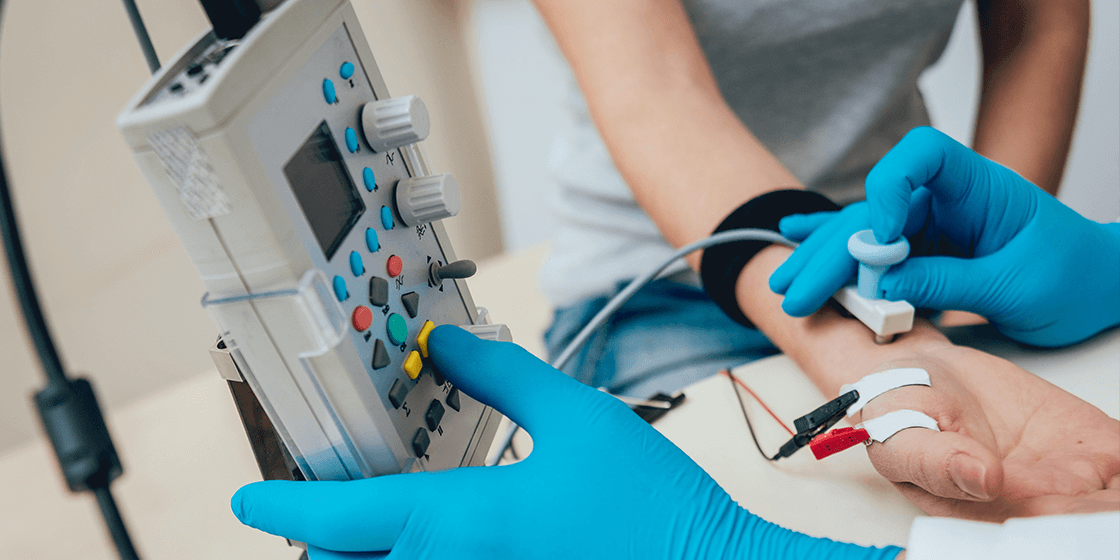
What exactly is a “pinched nerve” and how does it happen in the neck? What are the signs and symptoms of a pinched nerve? Who should you see if you think you have a pinched nerve? What tests can be performed to diagnose it and what are some treatment options? If nervous system symptoms are leaving you puzzled and uncomfortable, call Jersey Integrative Health and Wellness to undergo nerve testing and find their source today.You have likely heard of someone complaining of a “pinched nerve” when referring to pain experienced in the neck or back that extends into the limbs. It can also rule out other conditions that mimic the feeling of a pinched nerve.

Nerve testing helps the team find the reason why you’re experiencing such symptoms and helps to find the severity of any nerve damage. The team at Jersey Integrative Health and Wellness may suggest that you undergo nerve testing if you have numbness, tingling, or other symptoms of nerve problems. While this isn’t the most comfortable sensation, the test is over quickly and helps guide your physician to the right pain relief treatment in the long-run.

Patients report that the needles in their muscles used for EMG testing feel like muscle cramps or splints. This part of the test is generally quite tolerable. Most patients report that they are mildly uncomfortable but not painful. Are nerve tests painful?Įlectrical shocks, like those used in nerve conduction studies, sound like they might be painful. The EMG machine creates a graph of your muscle contractions that doctors can read and use to identify problems with your nerves. Healthy nerves emit constant electrical signals, while those affected by a pinched nerve are choppy or otherwise abnormal. The team places needles into your muscles to read your nerve signals. Electromyography (EMG)ĮMG testing looks for pinched nerves in your neck or back. They compare your numbers to those of an average person. They read your pain response and interpret it to find out how fast or slow your nerves are functioning. Nerve testing typically consists of these two distinct parts: Nerve conduction studiesĭuring nerve conduction studies, the team places sensors on different parts of your arms and legs and stimulates them with tiny electric shocks. Jersey Integrative Health and Wellness offers electrodiagnostic nerve testing at each of their clinic locations. Nerve testing helps your doctor find the source in order to treat it accordingly.

If you’re experiencing symptoms like tingling in your arms and legs or widespread pain, the source could be a single pinched nerve along your spinal column. Nerve testing is a type of screening used by the team at Jersey Integrative Health and Wellness to get an idea of the functioning of your nerves and identify the sources of problems.


 0 kommentar(er)
0 kommentar(er)
